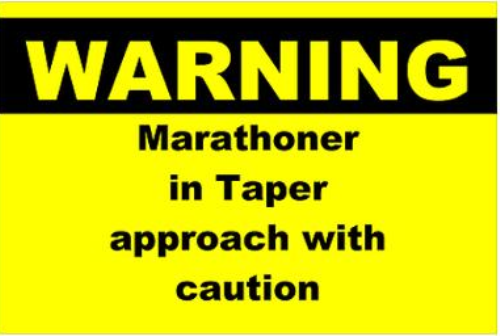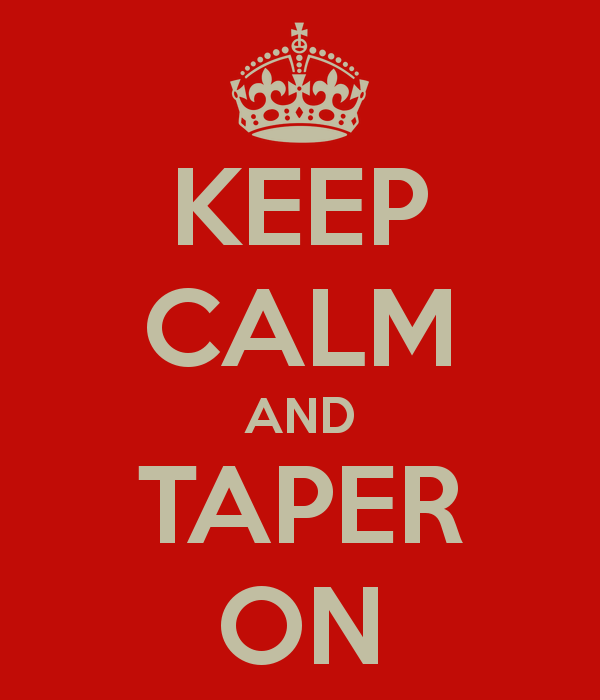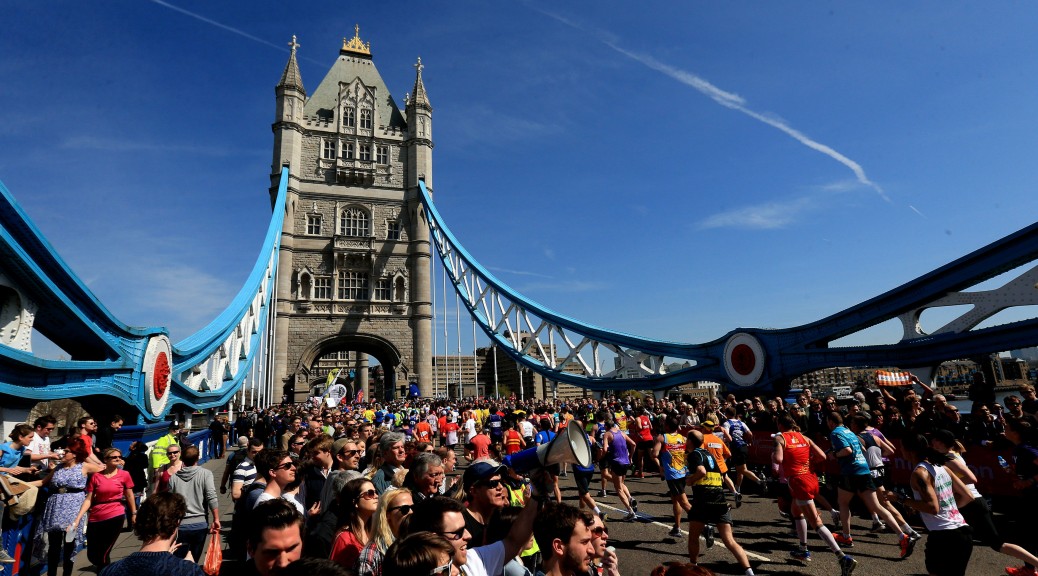 As I prepare for the London Marathon next week (4/24/15), I have begun the tapering process. I kinda have a love/hate relationship with tapering. I know it’s important but being someone who works out several hours a day and runs up to 64 miles a week, the taper can be tough. I am use to moving a lot, so when I actually have to take a pause, cut back, or stop… it can be hard.
As I prepare for the London Marathon next week (4/24/15), I have begun the tapering process. I kinda have a love/hate relationship with tapering. I know it’s important but being someone who works out several hours a day and runs up to 64 miles a week, the taper can be tough. I am use to moving a lot, so when I actually have to take a pause, cut back, or stop… it can be hard.
I have to think about my training plan and remind myself about the benefits of the taper in order for me to actually taper. So,I decided to write about the taper in this week’s blog post. It’s not only for me so I can be remind about why tapering is so important, but also for anyone else who feels the same way I do and would rather not taper.
Every good marathon training plan should taper during those 2-3 weeks before the race. That means you run less and rest more. So for people like me, the idea of backing off on our training just before the big race seems counterintuitive. Many runners, like myself, will train hard right up to the day of the marathon because we are afraid of losing fitness but what we need to remember is that in those last few weeks it’s the rest more than the work that makes you strong.
Research published by Medicine & Science in Sports & Exercise shows that levels of muscle glycogen, enzymes, antioxidants, and hormones, all depleted by high mileage, return to optimal ranges during a taper and any muscle damage done when training can be repaired during that time as well. This makes for a much better race on race day! Your body will be well rested and recovered to help get you get the PR you have been training for.
So remember, the main goal of the taper is to just chill. It’s a time to minimize accumulated fatigue, and not focus on any fitness gains.
Things to consider when tapering:
- Decrease your total mileage from the previous week by at least 20 percent.
- Weekday training plans should have at least one non running day.
- Your weekend long runs should be at a relaxed pace, about 2 minutes slower per mile than marathon goal pace.
- Get your mental game in check. Stay positive and upbeat!
- Figure out your goal pace and make a plan to achieve it. Running an even pace is important! If you start the race out too fast, be sure to slow down! If you start too slow, speed up, but only to goal pace; don’t try to make up time (that’ll hurt you in the end). Instead, speed up slightly during the second half. If you slip off goal pace mid race, start being your own cheerleader and think about ways to push through the pain. Check out last week’s blog for some strategies 🙂
- Take in extra protein to help with the repair and recovery of muscle tissue damaged during the high-mileage phase of marathon training.
- Rebuild your immune defenses by loading up on foods rich with Vitamin C (i.e. kiwi, orange juice, red bell peppers, broccoli, & strawberries
- Check the races website and confirm your marathon start time and work out the details of how you’ll get to the start on marathon day.
- Consider the weather and think about and what you should wear.
- Three days before the race, run just 2 to 3 miles easy. Two days before the race, don’t run at all, and one the day before the race, jog 2 miles to take the edge off.
- Try to minimize job, relationship, and/or travel stresses all week.
- Three days before the race, emphasize carbohydrates, 60 to 70 percent of your calories should come from carbohydrate sources (i.e. pasta, potatoes, rice, cereals, and fruit)
- Stay hydrated
- Don’t look at the scale. Because of your fully stocked fluid and fuel stores you’re likely to gain a couple pounds the week leading up to the race. But remember, it’s worth the weight. Having your body’s energy reserves at full capacity will do more for your race than weighing a little less. Plus, you’ll lose those pounds by the finish line anyway.
- Get ready to run and have fun! Smile because you’ve been training for months and the big day is FINALLY here! You’re prepared, you’ve got this!

